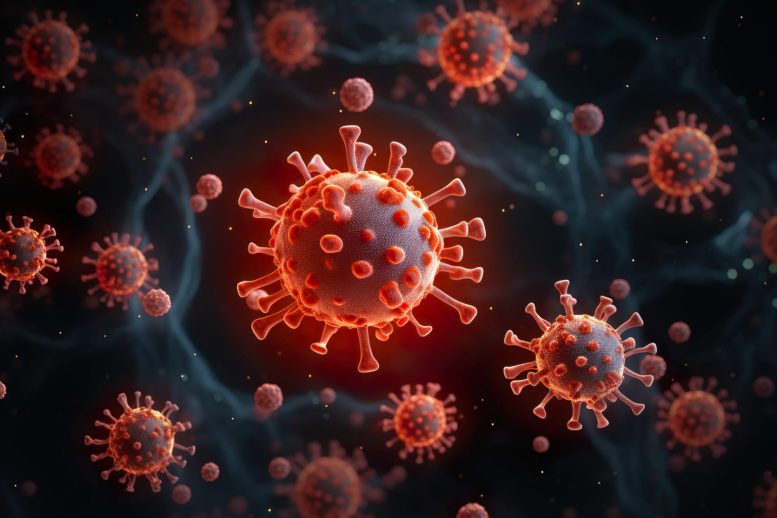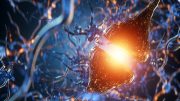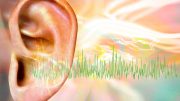
Researchers have discovered distinct immune and hormonal responses in long COVID patients compared to those without the condition. Their study, involving 268 individuals, indicates significant differences in antibodies and cortisol levels, shedding light on potential treatments. However, the complexity of long COVID presents challenges in developing effective therapies.
Individuals suffering from prolonged symptoms such as brain fog, confusion, pain, and extreme fatigue following COVID-19 infection show distinct immune and hormonal responses compared to those without long COVID, according to a new study by researchers at Yale School of Medicine and Icahn School of Medicine at Mount Sinai.
The identification of these distinct responses can help scientists for the first time identify the causes — and potentially explore cures — for the often debilitating illness that has afflicted millions of people worldwide. Approximately 7.5% of individuals in the U.S. who contract the SARS-CoV-2 virus latter suffer from long COVID.
Distinct Biological Responses in Long COVID Patients
“If you are a doctor doing routine lab work on these patients, you are not going to find these signals,” said Akiko Iwasaki, Sterling Professor of Immunobiology at Yale and co-senior author of the paper.
The findings were recently published in the journal Nature.
For the study, researchers analyzed blood samples from 268 people who had either experienced long COVID symptoms for an average of one year; had been infected with COVID-19 but had fully recovered; or had no known prior infections. The researchers observed significant differences between the circulating antibodies and other immune system cells among those with long COVID and the other groups of patients.
Immune and Hormonal Changes
Among those who had exhibited long COVID researchers also found increased circulation of antibodies that help the body fight non-COVID-19 viruses, particularly those known to defend against Epstein-Barr virus, a human herpesvirus that has been linked with many cancers. In addition, these patients had markedly lower levels of cortisol, a steroid hormone released by the adrenal glands in times of stress.
While these findings reveal key biological processes associated with long COVID, the complexity of individual responses means developing therapies to treat the ailment will be difficult, the authors say.
“There is no ‘silver bullet’ for treating long COVID because it is an illness that infiltrates complex systems such as the immune and hormonal regulation,” said co-senior author David Putrino, a professor of rehabilitation and human performance at Icahn Mount Sinai and director of the Cohen Center for Recovery From Complex Chronic Illness.
Towards New Diagnostics and Therapies
The new insights, however, provide important clues that may help in developing new diagnostics and therapies, Iwasaki said.
“Once we have more information on these signals, we can start to think about designing the right trials to treat this condition,” she said.
Reference: “Distinguishing features of long COVID identified through immune profiling” by Jon Klein, Jamie Wood, Jillian R. Jaycox, Rahul M. Dhodapkar, Peiwen Lu, Jeff R. Gehlhausen, Alexandra Tabachnikova, Kerrie Greene, Laura Tabacof, Amyn A. Malik, Valter Silva Monteiro, Julio Silva, Kathy Kamath, Minlu Zhang, Abhilash Dhal, Isabel M. Ott, Gabrielee Valle, Mario Peña-Hernández, Tianyang Mao, Bornali Bhattacharjee, Takehiro Takahashi, Carolina Lucas, Eric Song, Dayna McCarthy, Erica Breyman, Jenna Tosto-Mancuso, Yile Dai, Emily Perotti, Koray Akduman, Tiffany J. Tzeng, Lan Xu, Anna C. Geraghty, Michelle Monje, Inci Yildirim, John Shon, Ruslan Medzhitov, Denyse Lutchmansingh, Jennifer D. Possick, Naftali Kaminski, Saad B. Omer, Harlan M. Krumholz, Leying Guan, Charles S. Dela Cruz, David van Dijk, Aaron M. Ring, David Putrino and Akiko Iwasaki, 25 September 2023, Nature.
DOI: 10.1038/s41586-023-06651-y
Co-senior authors are Aaron Ring, an associate professor at Fred Hutchinson Cancer Center who conducted the research while at Yale School of Medicine, and David van Dijk of the Icahn School of Medicine.
Jon Klein, Jillian Jaycox, Rahul Dhodapkar, Peiwin Lu, Jeff Gehlhausen, and Alexandra Tabachnikova, all from Yale, are co-lead authors of the research.









Just curious; how many of these “long covid” patients also received the mRNA shot? Could that not be the root cause? It has already been demonstrated that the mRNA shots impact both one’s immune system (by design) and hormonal regulation and (women’s menstrual cycle) along with a host of other maladies.
Then there is also the question of “shedding”, i.e., being infected by man-made spike proteins that can traverse between individuals. This may be just the tip of the ice berg.
It is next to impossible to disprove a negative, for example, cats keep away pterodactyls. Easily proved since no human has been attacked by a pterodactyl since the introduction of cats as pets. QED